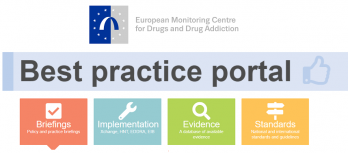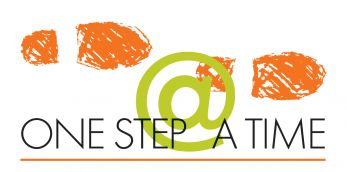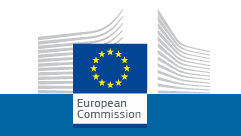"Involvement in the activities of COPOLAD has been extremely rewarding and beneficial in respect of institutional strengthening and developing the knowledge-base of Barbados"
ReturnPublished on 24/01/19
Mrs. Betty Hunte, Manager, NCSA holds a Post-graduate certificate in Human Resource Management; Bachelor of Science (Hons.) degree in Social Sciences (Psychology, Sociology & Management) from the University of the West Indies, Cave Hill, and an Associate degree in Social Work from the Barbados Community College. She also has Diplomas in Management of Human Resources from the Barbados Institute of Management and Productivity (BIMAP), Youth and Community Development from the Commonwealth Youth Programme (CYP), and a certificate in Basic Counselling from the Erdiston Teachers Training College. She is also a trained Volunteer with the National HIV/ AIDS Hotline since 1997. Mrs. Hunte brings 18 years of experience from Central Government in the clerical/ administrative areas. As Manager, Mrs. Hunte provides leadership, management and technical expertise in developing and implementing programs and services related to the mandate of Drug Demand Reduction for the Nation of Barbados. She works closely with the Council’s Board of Directors, Committees and its 18 Staff Members to plan, organise, manage and execute the work of the NCSA. The Manager is also responsible for fostering excellent relationships with public and private stakeholders and local, regional and international partners.

- Barbados has a new government since May 2018. In this new term, what are the main priorities of the National Council on Substance Abuse (NCSA) regarding drugs policy?
As a result of the general elections of May 2018, a new NCSA Board was constituted in August 2018. Among the priority issues identified to guide the development of drugs policy in Barbados were:
- Establishment of an Early Warning System (EWS);
- Build-out of the Barbados Drug Information System (BARDIN) into to National Observatory on Drugs (NDO);
- Development and dissemination of robust drug education messaging and materials;
- Structured implementation of the Barbados National Anti-Drugs Plan (BNADP).
- Barbados Drug Service is participating at the COPOLAD’s Working Group on “Promoting Regulatory Frameworks or Legislative Developments in the Field of Precursor Control”. Which are your main objectives for achieving progress in the legislative reform in this field and how COPOLAD can further assist your country in this process?
Based on the (BNADP), the major challenge regarding legislative reform was identified as the bureaucracy and length of time involved in amending existing or enacting new legislation. In addition, the following factors were identified as critical to the success of precursor control:
- Formulate and implement effective legislation.
- Develop and strengthen enforcement capabilities.
- Create mechanisms for effective information sharing and communication between stakeholders.
- Establish a national record-keeping mechanism for all imported chemical precursors.
- Establish national reference standards.
- Enhance synergy with the judiciary.
- Develop an information sharing system
- What are the main approaches adopted by the NCSA regarding prevention programmes and treatment services to face the problematic use of drugs?
The goal of the NCSA’s drug abuse prevention program is to make a positive impact on individual, family, and community behavior. The NCSA includes prevention principles as underlined below in its existing and new programs:
- Target all forms of drug abuse, including the use of tobacco, alcohol, marijuana and inhalants. Several programs have been developed by the NCSA for use with various populations. Although Barbados is faced with the inherent challenge of alcohol education (Rum being traditionally a main income earner for Barbados), we try to emphasize that misuse of any drug is problematic, and so our programs and activities encompass education about all forms of drug abuse.
- Include skills to resist drugs when offered, strengthen personal commitments against drug use and increase social competency (e.g., in communications, peer relationships, self-efficacy, and assertiveness), in conjunction with reinforcement of attitudes against drug use. Some years ago, the NCSA developed a successful Peer Support Program which was implemented in Secondary Schools. Because of resource challenges, the NCSA could not continue to run this program although it is still being offered by persons who were trained in its delivery.
- Prevention programs for adolescents should include interactive methods, such as peer discussion groups, rather than didactic teaching techniques alone. The NCSA’s Drug Education Officer for secondary schools also includes the use of rhythm poetry, dance and drama in the delivery of drug education to the adolescent population.
- Programs should include a parent or caregiver component that reinforces what the children are learning -- such as facts about drugs and their harmful effects -- and that opens opportunities for family discussions about the use of legal and illegal substances and family policies about their use. The NCSA has recognized the importance of this principle and tries, as far as possible, to include parents in its drug education programming. For example, one of our programs includes a residential camp for 40 children held during the summer period. Parents and caregivers are requested to attend sessions prior to and after the residential camp to reinforce what the participants of the camp were taught and to provide a safe space for parents to discuss issues which impact them in terms of drug use/ misuse.
- School-based efforts directed at elementary and middle school students should include booster sessions to help with critical transitions from middle to high school. The residential camp referred to above is the project used by the NCSA to assist children as they transition at aged 11 from primary school (ages 3/4-10/11) to secondary school (11/12- 16/17).
- Schools offer opportunities to reach all populations and also serve as important settings for specific subpopulations at risk for drug abuse, such as children with behavior problems or learning disabilities and those who are potential dropouts. The Council has developed an intervention for the disabled community to include both adults and children. One of the products of that intervention is the development of a media campaign targeting the hearing-impaired community.
- Prevention programs should be age-specific, developmentally appropriate, and culturally sensitive. This is a primary principle of all drug education initiatives at the NCSA. We also work with strategic partners like the Ministry of Education to deliver drug education in educational institutions at all levels. The NCSA has developed a curriculum for secondary schools (ages 11/12- 16/17) which it has been delivering over the past three years. In addition, officers are sometimes requested by individual schools to facilitate core components of drug education like interpersonal, refusal and negotiation skills)
- With regard to treatment, the NCSA provides its service free of cost to all persons. Clients access the service either as walk-ins or by appointment although we encourage the latter. For the 2018 period, the client population who came for treatment at the NCSA were mostly adolescent males between the ages of 12 to 18. The main drug of choice for these clients was marijuana which is usually laced with ‘fanta’ (wild tobacco). In addition to marijuana use, these clients usually presented with the co-occurrence of behavioural issues such as problems managing anger appropriately. One client was seen for alcohol use who was an adult female and another for tobacco use. The latter was an adult male. For the treatment of those who use substances, we use a combination of Cognitive Behavioural Therapy and Motivational Interviewing. The counselling programme is mainly individual therapy involving the support and education of parents, family members and significant others on the presenting problem.
- Barbados- through NCSA- is participating in a study “women and drugs” being produced through COPOLAD. According to your interesting experiences in running treatment services tailored to women needs in different settings, which measures could be applied to further consider the gender approach as a cross-cutting issue in all areas of drugs policy?
In Barbados, the Bureau of Gender Affairs is tasked with development of gender-based interventions. In this regard, the NCSA has renewed its partnership with this agency. In addition, in recognition of the UNGASS goals, the NCSA is incorporating a gender approach in its programming. The Council is currently reviewing its projects/programmes/activities to ensure that the peculiarities associated with “women and drugs” are included at all levels of its educational, programming and policy initiatives.
- Since 2016 Barbados has been participating at several COPOLAD II activities. What is your assessment of the collaboration and exchange experiences between CELAC and the EU countries facilitated by COPOLAD?
Involvement in the activities of COPOLAD has been extremely rewarding and beneficial in respect of institutional strengthening and developing the knowledge-base, not only of the Council but at a national level. Owing to the internal processes involved in selection of representatives to external meetings, notification to COPOLAD is often late and this sometimes impacts the full benefits which Barbados could derive from attendance. Perhaps a full directory of participants could be established which would facilitate the interaction of participants in directly interacting with each other over the long-term.
Downloads
-
2019-01/1547803850_ps-2018-timetable File PDF. 186.5 Kb
The European Commission is preparing a third phase of this programme, therefore COPOLAD will be back at the beginning of 2021.









